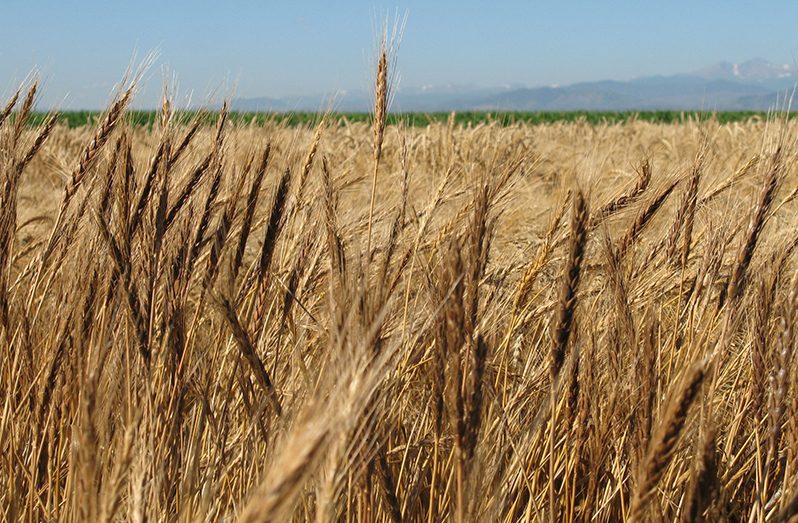AS Guyana continues to advance local and regional food security, the Ministry of Agriculture will soon begin open-field trials for wheat production in Region Nine (Upper Takutu-Upper Essequibo).
In an invited comment to the Guyana Chronicle on Monday, Agriculture Minister Zulfikar Mustapa related that the open-field trial for wheat is scheduled to commence within two months’ time, at Santa Fe, North Rupununi.
The trial was previously scheduled to begin in September of 2022; however, due to torrential rainfall the trial was delayed.
“We would have started the indoor and outdoor trials; hopefully in another month or two from now we can start the big trial in Region Nine at Sante Fe,” Mustapha told this publication.
For the open-field trial, Guyana will be partnering with the Brazilian Agricultural Research Corporation (EMBRAPA).
“We would have worked with EMBRAPA; we had the consultant team here recently in the country. They will work with NAREI [National Agricultural Research and Extension institute] to get that experiment plot rolling. We will do between 50 – 100 acres,” Minister Mustapha said.
Additionally, a small trial also began in Paramakatoi in Region Eight (Potaro-Siparuni). Six varieties will be tested during the open-field trial and, once completed and successful, the ministry will move to produce wheat on a larger scale.
Back in May 2022, Guyana received 49 lines of wheat from the Government of Mexico to start a trial phase. The indoor trial, which explored several varieties, was completed at the Burma Rice Station in Mahaicony, Region Five (Mahaica-Berbice).
Addressing the objective of the wheat trials in a previous interview, Minister Mustapha said the aim is to have Guyana become self-sufficient by removing dependence on imports.
He said: “We are very determined! And as long as the trial is successful, we will be going to produce our own wheat because we can’t depend too much on imports… As a country, we have to ensure that we produce our own food and be self-sufficient.”
Mustapha acknowledged that the pandemic played a major role in influencing the government to explore this project.
“We can have all the money in the world and we would have seen during the pandemic how many countries were suffering to get food because there was a scarcity,” Mustapha said, noting: “And in Guyana, we are very fortunate that we produce most of the food that we consume.”
Prices for wheat had skyrocketed globally due to the Russia-Ukraine war. Russia and Ukraine account for approximately 30 per cent of the world’s traded wheat.
To ease the negative economic impact felt locally, President, Dr. Irfaan Ali, in March, had announced that Guyana was exploring the possibility of sourcing a variety of wheat for local production.
“Soon, we are going to work to see whether we can find a variety of wheat that we can plant in Guyana, so that we can fulfill even our local requirement,” President Ali had said last year.
He added: “We are learning important lessons now that we must not leave unanswered for future generations.”




.jpg)










